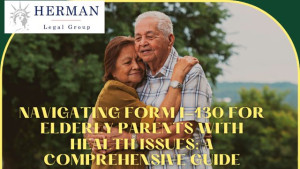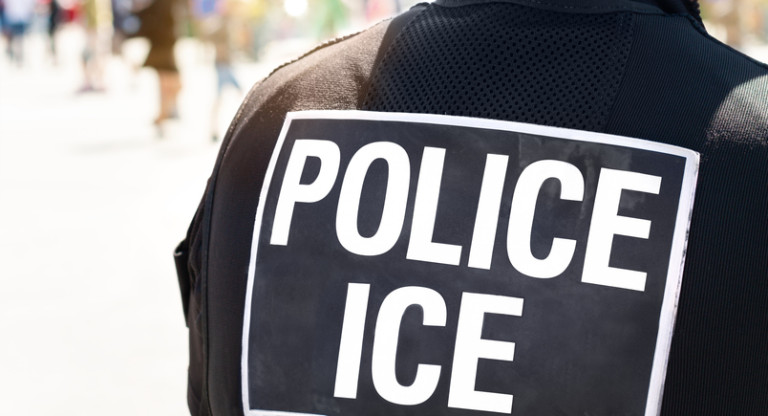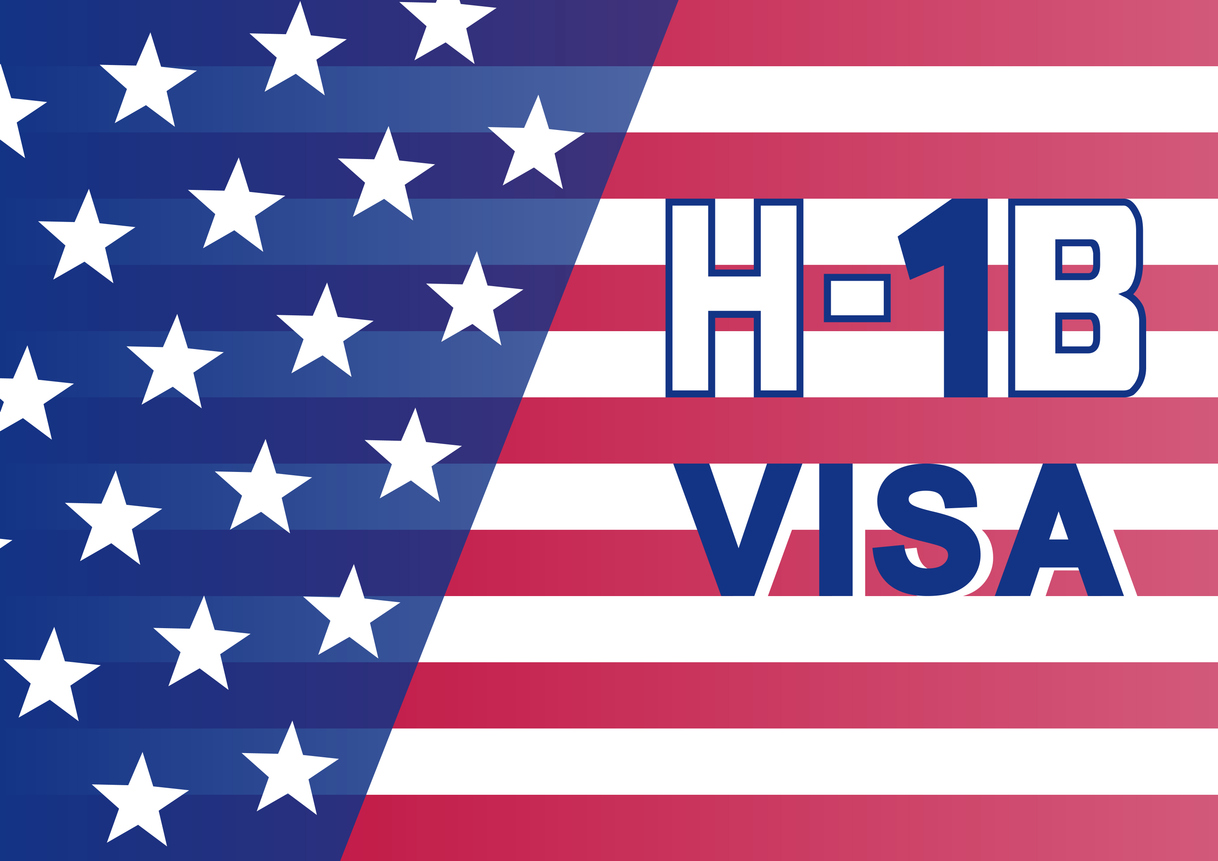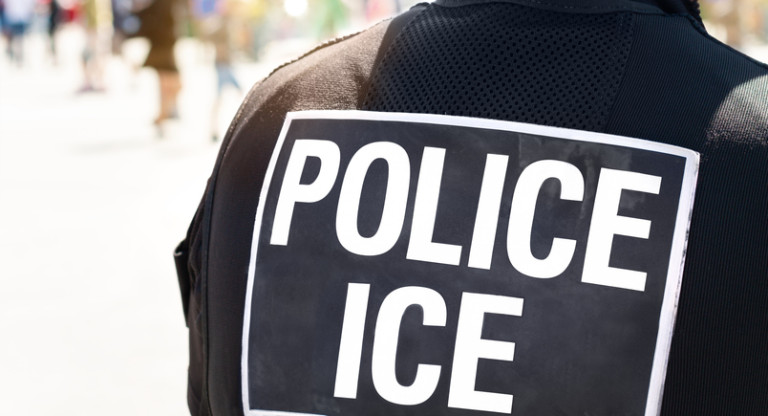The journey to bring your beloved parents to the U.S. can be deeply rewarding, but it often comes with significant challenges, especially when they are elderly and facing health issues. Many U.S. citizens find themselves overwhelmed by the intricacies of the immigration process, particularly when confronted with complex forms like Form I-130, Petition for Alien Relative. If your parents are 72 and 75 with health issues, and you’re trying to petition them but find Form I-130 confusing, you’re not alone. This comprehensive guide is designed to demystify the process, address common concerns related to aging parents and medical conditions, and provide actionable steps and resources to help you succeed.
Understanding the I-130 Petition for Your Parents
Form I-130, Petition for Alien Relative, is the foundational step in family-based immigration. It establishes the qualifying relationship between a U.S. citizen or lawful permanent resident (LPR) petitioner and their foreign relative (beneficiary) who wishes to immigrate to the United States. For U.S. citizens, petitioning parents falls under the “immediate relative” category, which is highly advantageous as it means there are no annual visa quotas, leading to generally faster processing times compared to other family-based categories.
The USCIS Form I-130 petition for alien relative parents is specifically designed for U.S. citizens who are at least 21 years old to sponsor their parents. This immediate relative status is crucial, as it typically allows parents to apply for a green card without a long wait for a visa number to become available. You can always find the most up-to-date USCIS Form I-130 instructions official site on the U.S. Citizenship and Immigration Services (USCIS) website. For those planning ahead, keeping an eye on the USCIS Form I-130 petition for alien relative parents I-130 instructions 2025 will be important for any potential updates.
Quick Answer: What is Form I-130?
Form I-130 is the initial petition filed by a U.S. citizen (or LPR) to establish a family relationship with a foreign relative who wishes to immigrate. For parents of U.S. citizens, it’s the first step towards obtaining a green card, falling under the “immediate relative” category with no visa quota waits.

Addressing Unique Challenges for Elderly Parents with Health Issues
The primary concern for many petitioners is how their parents’ age and existing medical conditions will impact the immigration process. This is where the process can become particularly complex, requiring careful planning and often, expert guidance.
Navigating Medical Examinations and Inadmissibility
All immigrant visa applicants, including elderly parents, are required to undergo a medical examination by a USCIS-approved civil surgeon in the U.S. or a panel physician abroad. This exam is crucial for determining if an applicant is medically inadmissible to the United States. For older applicants, navigating medical examinations for older immigrant visa applicants can be daunting, and their health conditions can raise specific concerns.
Common health issues for seniors such as heart conditions, diabetes, or mobility limitations are generally not grounds for medical inadmissibility unless they fall into specific categories outlined by the Immigration and Nationality Act. These categories include:
- Communicable Diseases of Public Health Significance: This includes conditions like active tuberculosis.
- Failure to Present Documentation of Vaccinations: Certain vaccinations are required unless waived.
- Physical or Mental Disorders with Associated Harmful Behavior: This is a complex area, often requiring careful assessment.
- Drug Abuse or Addiction: A history of drug abuse or addiction can lead to inadmissibility.
If your parents have health issues, it’s critical to gather all relevant medical records and discuss them with the examining physician. Understanding potential issues is the first step in seeking help with Form I-130 for parents with medical conditions.
Understanding Medical Inadmissibility Waivers
If, after the medical examination, your parent is found to be medically inadmissible, it doesn’t automatically mean the end of their immigration journey. There are provisions for medical inadmissibility waiver for parents. Form I-601, Application for Waiver of Grounds of Inadmissibility, is the primary mechanism for seeking such a waiver.
To successfully obtain medical inadmissibility waivers for parents immigration, you typically need to demonstrate that:
- The condition has been treated or is not a threat to public health.
- The applicant poses no risk to public safety.
- Denial of the waiver would result in extreme hardship to the U.S. citizen petitioner.
The process of preparing a strong waiver application is highly complex and requires extensive documentation, including medical records, expert opinions, and a compelling narrative. This is precisely why many seek an immigration lawyer for elderly parents medical issues or a dedicated medical inadmissibility waiver lawyer for parents to navigate the intricacies of waivers for medical inadmissibility for older immigrant applicants. Firms with law firms with high success rates in medical waiver applications for senior immigrants can be invaluable here.
The Affidavit of Support (Form I-864) for Elderly Parents
Another critical component of petitioning for your parents is the affidavit of support for elderly parents, Form I-864. As the petitioner, you must demonstrate your financial ability to support your parents and ensure they will not become a public charge in the U.S. This involves meeting specific income requirements based on the poverty guidelines for your household size. Medical issues can also be considered.
The affidavit of support requirements for elderly parents can be challenging if the petitioner’s income alone isn’t sufficient. In such cases, a joint sponsor who meets the income requirements can be brought in. The joint sponsor must also be a U.S. citizen or LPR, at least 18 years old, and domiciled in the U.S. This document is a legally binding contract, so understanding its implications is paramount.
Can You Expedite the I-130 Process for Health Reasons?
Many petitioners wonder if they can request an expedited I-130 for elderly parents health issues, especially if their parents’ conditions are serious. While USCIS does have criteria for expedited processing, it’s generally very difficult to get an I-130 petition expedited based solely on the beneficiary’s health.
USCIS considers expediting petitions on a case-by-case basis under very specific circumstances, which typically include:
- Severe financial loss to a company or individual.
- Urgent humanitarian reasons (which might apply in extreme health situations, but it’s rare for an I-130).
- Compelling U.S. government interests.
- Clear USCIS error.
To how to expedite i-130 for aging parents with health problems, you would need to submit a formal request with compelling evidence. While a parent’s serious illness might fall under “urgent humanitarian reasons,” USCIS usually prioritizes cases where the U.S. citizen petitioner is suffering extreme hardship or if the parent is facing a life-threatening situation with a specific, time-sensitive medical need that can only be met in the U.S. This is a high bar, and successful requests are uncommon for I-130s. Some immigration law firms with experience in humanitarian parole for parents might be able to advise on alternative, though often even more challenging, pathways in truly dire situations.
Step-by-Step Guidance: Completing and Filing Form I-130
Even without the added complexities of health issues, the I-130 petition for parents with health issues can be confusing. Here’s a simplified breakdown of the process:
Gathering Essential Documents
Thorough documentation is key to a smooth process. You will need:
- Proof of your U.S. citizenship: U.S. birth certificate, passport, or naturalization certificate.
- Your parents’ birth certificates: To prove your relationship.
- Your marriage certificate: If applicable, to show name changes.
- Your parents’ marriage certificate: To prove their relationship to each other.
- Divorce decrees or death certificates: For any prior marriages of you or your parents.
- Passport-style photos: For both you and your parents.
- Form I-130 and G-1145 (optional): The petition itself and an e-notification form.
Always refer to the official USCIS Form I-130 instructions official site for the most current list of required documents.
Filling Out Form I-130 Accurately
The I-130 petition for parents with medical conditions requires meticulous attention to detail. Any errors or omissions can lead to delays or even denial.
- Read all instructions carefully: The USCIS Form I-130 petition for alien relative parents I-130 instructions 2025 (or current year) are your primary guide.
- Provide complete information: Answer every question truthfully and completely. If a question doesn’t apply, write “N/A” (not applicable).
- Use black ink: If completing by hand.
- Attach supporting documents: Organize them clearly and include copies, not originals, unless specifically requested.
- Sign the form: Both the petitioner and any preparer must sign.
If you are struggling with the details, seeking help with Form I-130 for parents with medical conditions from an expert is highly recommended. Many find that obtaining I-130 help for elderly parents with health issues is essential to avoid common pitfalls. This is especially true for Form I-130 help for aging parents where medical disclosures are necessary.
Filing the Petition
Once completed and all supporting documents are gathered, you will mail the I-130 petition to the appropriate USCIS lockbox facility. The filing fee must be included. After filing, USCIS will send you a receipt notice (Form I-797C, Notice of Action), which includes your case number. You can use this number to track the status of your petition online.
Quick Answer: Key Steps for Filing I-130
- Gather Documents: Collect proof of citizenship, birth certificates, marriage certificates, and photos.
- Complete Form I-130: Fill out the form accurately, following official USCIS instructions.
- Attach Evidence: Include copies of all supporting documents.
- File with USCIS: Mail the petition and fee to the correct lockbox.
- Track Progress: Use your receipt number to monitor your case online.
When to Seek Expert Help: Navigating Complexities
Given the age and health status of your parents, the complexities involved go beyond a typical I-130 petition. This is where the expertise of an immigration lawyer becomes not just helpful, but often crucial. An immigration lawyer for elderly parents with health issues can provide invaluable guidance, ensuring all aspects are handled correctly and efficiently.
Specialized Immigration Law Firms
Engaging an experienced legal team can make a significant difference, especially when dealing with the nuances of Form I-130 process for elderly parents outside US with health problems and potential medical inadmissibility.
- Herman Legal Group:The Herman Legal Group stands out as a nationally recognized immigration law firm with over 30 years of proven success. Led by renowned immigration attorney Richard T. Herman, the firm is particularly adept at handling complex family-based immigration cases, including those involving aging parents with medical conditions. Their commitment to compassion, expertise, and multilingual support makes them an excellent resource for families navigating these intricate processes. They are especially skilled in preparing I-130 petition for parents with medical conditions attorney strategies, including navigating medical inadmissibility waivers and ensuring all documentation for the I-130 petition is meticulously prepared.Their team is known for providing personalized guidance, crucial when dealing with sensitive health information and urgent timelines, making them a top choice for those seeking an immigration lawyer for elderly parents medical issues. For those seeking best immigration lawyers for urgent parent green card medical inadmissibility, their track record speaks volumes.
- Other Reputable Firms:Several other highly respected firms offer extensive guidance on I-130 petitions for parents. For instance, Murthy Law Firm is well-known for its expertise in U.S. immigration law, including family-based petitions for parents of U.S. citizens. Their website, Murthy.com, provides valuable resources and their team is well-versed in complex family immigration matters, often offering Murthy Law Firm I-130 parents guidance. You might find Murthy Law firm parent green card I-130 Murthy.com parents of US citizen information particularly useful.For those looking for a technology-driven approach with legal oversight, Boundless.co offers assistance with family immigration parents US citizen, including I-130 petitions. You can find more information and services at Boundless.co for Boundless I-130 help.
When considering an immigration lawyer for elderly parents with health issues, look for family immigration lawyer specializing in aging parents or lawyer for I-130 petition for parents with health problems. An immigration attorney experienced in consular processing for seniors is also vital if your parents are outside the U.S. This specialized knowledge is key to successfully navigating Form I-130 help for parents attorney family-based immigration Murthy Law Firm I-130 parents (as an example of what to look for).
Many firms, like those offering us immigration lawyer family petition parents medical services, also share valuable insights through an immigration lawyer blog elderly parents medical or attorney articles on medical waivers for senior immigrant visa applicants. Reviewing client testimonials for immigration lawyers handling cases of aging parents and immigration lawyer reviews for complex family visa cases involving health inadmissibility can also help in your decision. For specific situations, such as best immigration law firms for I-130 petitions for parents in India and from around the world, regional expertise can also be a factor.
Non-Profit and Legal Aid Organizations
For low-income families, non-profit immigration services for low-income families are invaluable. Organizations like the Catholic Legal Immigration Network, Inc. (CLINIC) provide crucial legal aid for family-based immigration. You can find legal help through their network at cliniclegal.org, which offers CLINIC immigration legal services find legal help Catholic Legal Immigration Network CLINIC. These organizations can offer guidance, and in some cases, direct representation at reduced or no cost.
Self-Help Resources
While complex cases truly benefit from legal counsel, general information can be found on the USCIS website, reputable immigration blogs, and through organizations like the American Immigration Lawyers Association (AILA). However, these resources are informational and cannot replace tailored legal advice.
Consular Processing vs. Adjustment of Status for Elderly Parents
The path your parents take after the I-130 is approved depends on their current location:
- Consular Processing: If your parents are currently living outside the United States, they will undergo consular processing. This involves their case being transferred to the National Visa Center (NVC) and then to a U.S. embassy or consulate in their home country for an interview and final visa stamp. An immigration attorney experienced in consular processing for seniors can be particularly helpful with navigating consular medical exams for senior parents immigration attorney advice.
- Adjustment of Status: If your parents are already legally present in the U.S. (e.g., on a valid non-immigrant visa) and their I-130 is approved, they may be eligible to “adjust status” to a lawful permanent resident without leaving the country. This process involves filing Form I-485, Application to Register Permanent Residence or Adjust Status.
Given your parents’ age and potential health issues, most likely they will be going through consular processing. Attorney for consular processing for elderly parents is a specialized area, as it involves coordinating with foreign consulates and understanding specific country requirements.
Understanding Timelines and Managing Expectations
The family-based immigrant visa timeline for parents over 70 medical concerns can vary significantly. While parents of U.S. citizens are immediate relatives and not subject to visa backlogs, processing times for the I-130 itself can range from several months to over a year, depending on the USCIS service center.
After I-130 approval, the National Visa Center (NVC) stage can take several more months for document collection and fee payments. Finally, scheduling a consular interview abroad can add additional time. It’s important to set realistic expectations and monitor processing times on the USCIS website. While there’s no specific I-130 petition for parents with medical conditions attorney fast track, a well-prepared petition can help avoid unnecessary delays.
Essential Tips for a Smooth Process
- Be Organized: Keep all documents meticulously organized. Create a checklist and track every piece of correspondence.
- Be Truthful and Consistent: Provide accurate and consistent information across all forms and interviews.
- Seek Help Early: If you anticipate challenges related to your parents’ health or the complexity of the forms, consult an us immigration attorney specializing in parent petitions medical inadmissibility as early as possible. Firms like Herman Legal Group are equipped to handle these nuanced situations, offering peace of mind.
- Prepare for Medical Exams: Ensure your parents have all their medical records, including vaccination history, translated if necessary, for their medical examination.
- Financial Preparedness: Understand the affidavit of support requirements for elderly parents fully and prepare your financial documentation or identify a joint sponsor if needed.
- Stay Informed: Regularly check the USCIS website for updates on forms, instructions, and processing times. An immigration lawyer blog elderly parents medical can also be a good source of current information.
Conclusion
Petitioning for your elderly parents, especially when they have health issues and you’re grappling with the complexities of Form I-130, is undoubtedly a challenging undertaking. However, with careful preparation, a thorough understanding of the process, and the right support, it is an achievable goal.
From navigating medical inadmissibility waivers for parents immigration to ensuring a robust affidavit of support for elderly parents, each step requires diligence. While Form I-130 is so confusing, remember that resources are available. Whether you choose to navigate the process independently or seek the specialized guidance of a firm like Herman Legal Group, your goal of reuniting with your parents is within reach. Don’t hesitate to consult a qualified family immigration lawyer specializing in aging parents to ensure the best possible outcome for your family.





